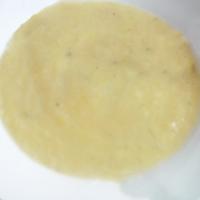Low Carb Food News About Stevia The 0 Calorie Sweetener
Anyone searching for healthy, low carb foods should be aware of stevia, the all natural sweetener, as a replacement for sugar or artificial sweeteners. A vast majority of articles and research projects conducted on stevia have concluded that it may be the one sweetener that is actually good for people. It has been shown that stevia can help individuals maintain normal blood sugar levels, and it is a zero calorie sweetener. What is stevia and why is Coca Cola teaming up with Cargill to make it a replacement for sugar in many products? Also, why has the FDA rejected stevia as a food additive, but permitted it to be used as a dietary supplement?
First, let's take a look at the origins of stevia and how it has gained attention with the rise in demand for low carb foods and low sugar substitutes. Stevia has been used for centuries by native South American tribes as a sweetener in yerba mate and medicinal teas for treating heartburn and other ailments. It is a plant in the Chrysanthemum family, which grows wild in parts of Paraguay and Brazil. Wikipedia describes stevia as an herb or shrub "in the sunflower family, native to subtropical and tropical South America and Central America". The plant's extracts have up to 300 times the sweetness of sugar, but have a negligible impact on blood glucose. So it is easy to see why stevia is being noticed by people looking for low carb foods or who are trying to maintain normal blood sugar levels with a low carb diet.
Since the early 1970's, Japan has led the way in cultivating and using stevia as a replacement for artificial sweeteners such as cyclamate and saccharin, which are alleged carcinogens. Commercially produced in Japan since 1977, stevia sweeteners are often used in that country for low carb foods and soft drinks. Japan currently accounts for about 40% of the world's consumption of stevia, more than any other country. It is now widely used throughout the world, especially in East Asia, South America and Israel. Stevia has been available as a dietary supplement in the United States and Canada since the mid 1980's. Many people in this country use it as a beneficial sweetener for health drink formulas not sold in retail stores.
In 1984, Dr. Tei-Fu Chen, an American herbalist from Taiwan, perfected a method to extract the sweetness from stevia without using chemicals. This method is accepted today as the most advantageous way to produce stevia products for consumption. Dr. Chen's company, Sunrider, successfully petitioned the FDA (Food & Drug Administration) in 1995 to lift the import alert on the extract of stevia leaves. This paved the way for companies to use stevia as a "dietary supplement", and in May of 2007, Coca Cola announced plans to seek approval for its use as a "food additive". Coca Cola currently uses stevia in soft drinks made in Japan, and is hoping to market a new calorie free sweetener in the United States to use in low carb foods by 2009. In 1984, stevia was introduced as Sunectar by Sunrider and later a clear liquid version called Sunnydew accompanied the thicker, darker Sunectar in the market. Coca Cola is tentatively planning to call their product, Rebiana, which is derived from the plant's botanical name stevia rebaudiana.
The only thing that might prevent the use of stevia based products for low carb foods and drinks in the U.S. is the FDA approval of stevia as a "food additive". As of today in the U.S, stevia is not allowed to be sold as a food additive but is considered to be safe as a dietary supplement. You see, stevia grows naturally therefore it does not require a patent. Some advocates of stevia have expressed their opinions that the FDA has acted solely in response to pressure from the sugar and artificial sweetener industries. For example, Arizona congressman, Jon Kyl, called the FDA action against stevia "a restraint of trade to benefit the artificial sweetener industry". Although, the growing popularity of stevia may force the FDA to take a closer look at the current food additive ban. Coca Cola has teamed up with the agricultural products company, Cargill to market rebiana-sweetened products in 12 countries that already allow stevia as a food additive.
As far as I can tell through research and through my own experience with stevia, the benefits of this herbal supplement far outweigh any possible negative consequences. Because stevia is up to 300 times sweeter than sugar, only a few tiny drops are needed to sweeten foods and drinks. Most stevia products contain zero calories, and some contain complex carbohydrates that are beneficial to anyone, especially those on a low carbohydrate diet. It has been said that stevia is food for the pancreas, which can help maintain normal blood sugar levels. Through my own daily use of stevia and my desire to maintain a diet of low carb foods for more than six years now, I can say that it has helped reduce cravings for sugary foods and has contributed to a decrease in mood swings caused by over consumption of sugar.
I encourage anyone who is searching for quality nutrition in low carb foods, to investigate stevia and make it a part of a healthy, balanced, low carbohydrate diet.
Related Articles
-
The way to Clean and Rebuild Carburetors (2)
Also try tightening carb top screws or other carburetor bod
-
Natural Low Carb Foods List-10 Choices For An All Natural Low Carb Diet
When shopping for low carb foods it seems that many of the products a
-
Tips to Tuning the Carburetor (2)
Settingup
-
Low Carb Snacks That Kids And Adults Will Love
Its the highlight of any school day - recess. This is applicable to a
-
Atkins Diet Foods Facts
Atkins diet plan foodstuff are easy to uncover and readily
-
Tips To How To Eat Healthy
Attempt to stay healthy may seem very difficult task, especially if y
- DON'T MISS
- Sticking to High Protein, Low Fat, Low Carb Foods
- Pumpkin Chiffon Pie
- Low Carb Diets: They Can Take It Off Quickly, But The Problem Is Keeping It Off!
- Can All Low Carb Diets Improve Your Health?
- Nutritional Support For Low-carb Dieters
- Creating Your Own Low Carb Vegetarian Meal
- Low-Carb Diets and Exercise
- Low carb high protein diet heart risk - halifaxcourier
- Atkins Cake
- Sweetners Information




